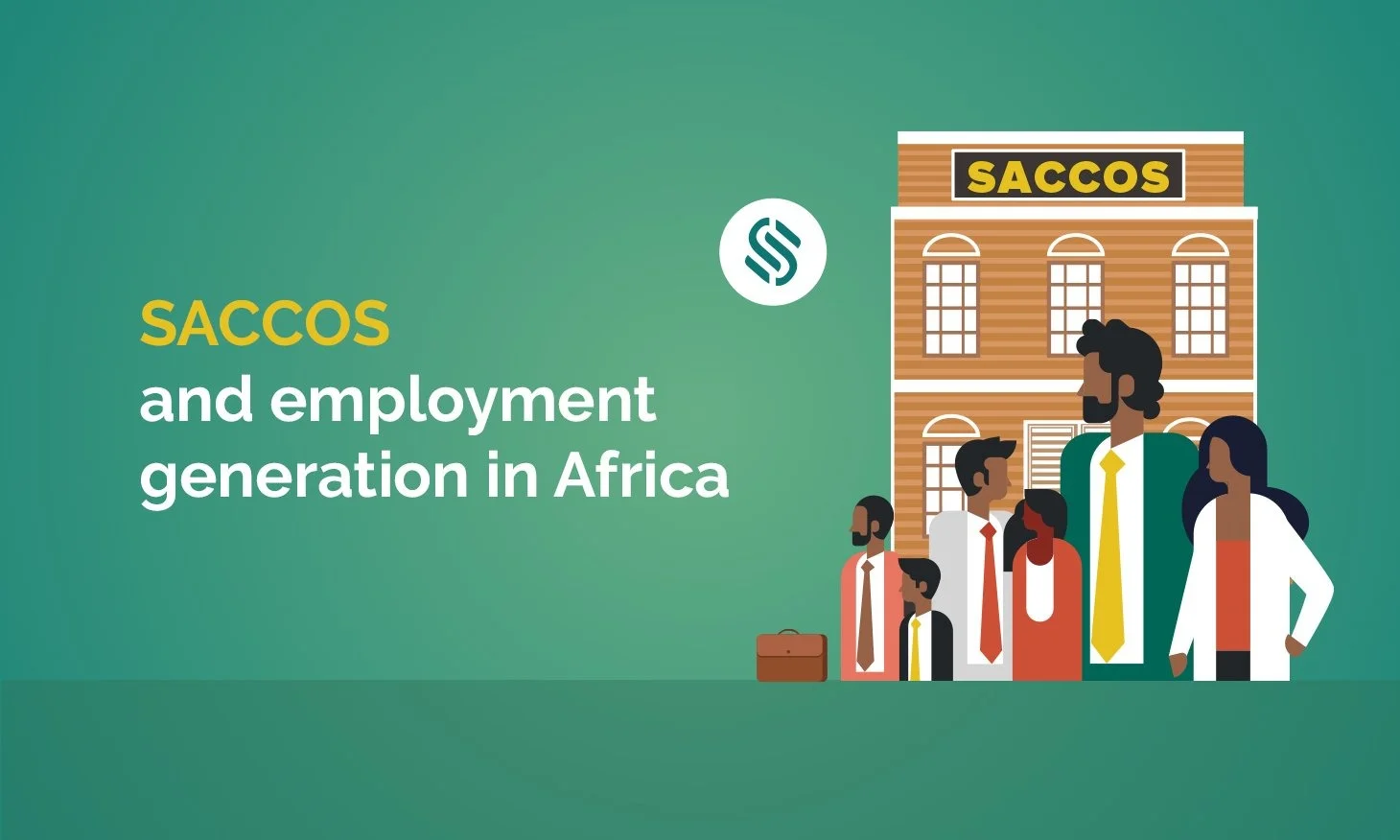SACCOS and employment generation in Africa

Every year, 10 to 12 million youth enter the workforce in Africa. But only 3.1 million jobs are created, leaving a significant percentage of youth without any job. This vast difference leads to severe unemployment in the continent which gives birth to various issues such as substandard living conditions, heavy migration from the continent, and slouched economic growth.
It also becomes one of the reasons why the majority of Africans are working in the informal sector. It is estimated that nearly 80% of people in many countries work in the informal economy, especially the youth and women.
There is a dire need of creating job opportunities to drive inclusive economic growth in Africa. That said, cooperative societies in countries like Kenya, Tanzania, Uganda, and Ethiopia have become major employers in the informal economy. They significantly impact the employment generation by providing direct jobs and promoting self-employment. In fact, in many countries, they offer around 80% of employment other than the government.
SACCOs create employment opportunities – in three unique ways.
Direct employment – SACCOs and other cooperatives provide direct wage employment to the people with working cooperative societies. They also encourage savings amongst their employees which acts as collateral security to enable them to acquire bigger loans. This saving culture consequently promotes further investment and economic opportunities for the savers. The impact of SACCOs on employment is more visible in the self-employment realm.
Self-employment opportunities – They promote self-employment opportunities for members by providing quick and affordable business loans. These loan facilities enable people to start new businesses, rebuild the business after losses or natural disasters, and receive both short and long-term credit facilities to meet their needs. SACCOs not only provide monetary support but also create marketing opportunities and raise profit margins by negotiating for better rates. Moreover, a vast number of farmers in Kenya sell their products like coffee and milk with the help of their SACCOs.
Support business ventures – SACCOs and other cooperative societies indirectly impact the employment for non-members with the ventures they support. Businesses and ventures that they support also invite employment opportunities for non-members across industries. For instance, many Kenyan business owners in sectors such as packaging, stationery, warehouses, etc. derive their income supporting the business operations of SACCOs and their members.
Conclusion
SACCOs are becoming a major source of credit resources for millions of Africans. They play a crucial role in lower-income groups through improving their saving habits, increasing income through business expansion, and meeting credit needs. Contributions from cooperative societies can help Africa to utilize its greatest asset for growth – people!

Comments